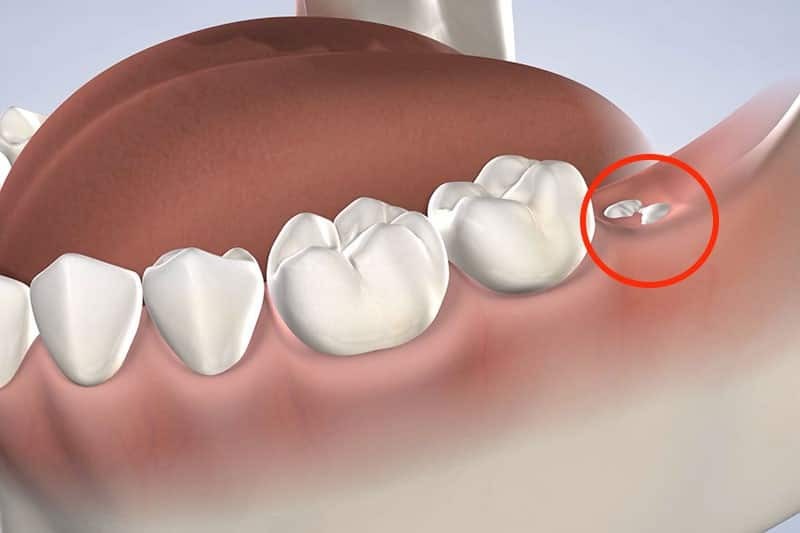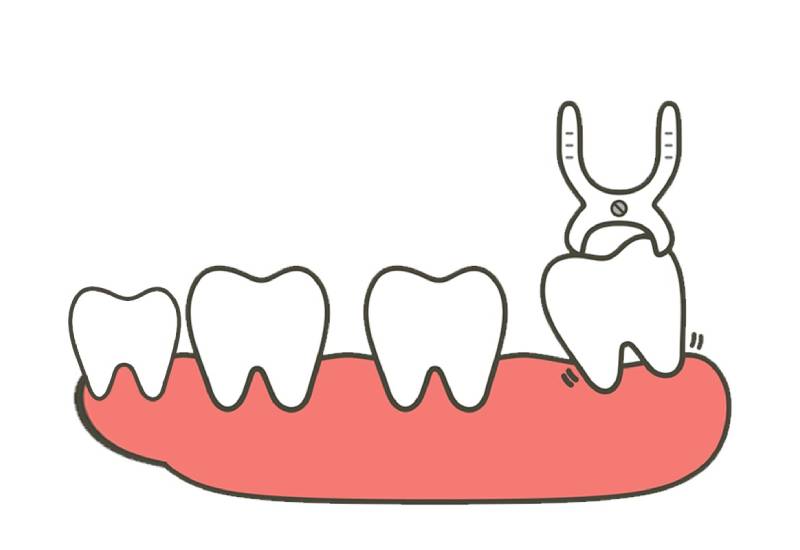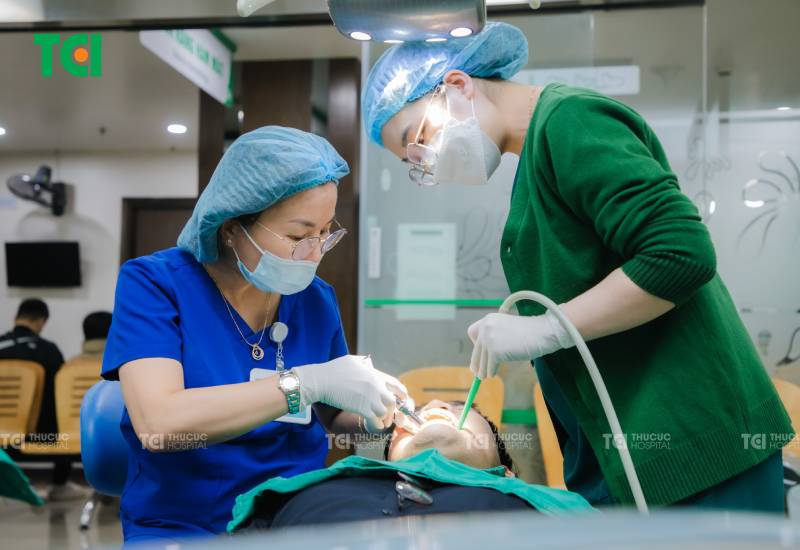Should you extract your wisdom teeth? Experts suggest that this decision depends on individual circumstances. However, in many cases, dentists will recommend extraction, especially if wisdom teeth negatively impact your health and quality of life. If you are considering this issue, read on to make an informed decision about wisdom teeth extraction.
1. Common Issues with Wisdom Teeth
1.1 What Are Wisdom Teeth?
Wisdom teeth, often referred to as third molars, are the last set of molars that emerge, typically appearing between the ages of 17 and 25. These teeth often don’t have a functional role in chewing or digesting food. For some, third molars might not fully develop or emerge at all. When they do emerge, they can cause significant dental issues, such as impaction and misalignment.

The position of third molar growth.
1.2 Impact of Wisdom Teeth
Wisdom teeth can cause several issues, including:
– Impaction: Due to limited space in the mouth, third molars may grow at an angle, partially emerge, or remain trapped within the jawbone, leading to pain, swelling, gum inflammation, infection, and even jawbone damage.
– Tooth Decay: Positioned at the back of the mouth, third molars are hard to clean, making them prone to decay due to trapped food particles and bacteria.
– Effect on Adjacent Teeth: Misaligned third molars can press against neighboring teeth, causing alignment issues and affecting your bite and appearance.
– Other Complications: Third molars can also cause cysts, abscesses, and nerve damage.
2. Addressing Concerns About Wisdom Teeth Extraction
Wisdom teeth extraction is a minor surgical procedure to remove one or more third molars. Despite advancements in dental surgery that make extractions quicker and less painful, the process still requires proper care and recovery time. Thus, determining whether to extract third molars involves careful consideration.

The decision to extract third molars is made after a process of examination and evaluation.
2.1 Should You Extract Your Wisdom Teeth?
The decision to extract wisdom teeth depends on several factors, including their position and your overall oral health. Consulting with a dental specialist who can evaluate your situation with X-rays and an examination is crucial.
Dentists typically recommend extraction in cases where:
– Improper Positioning: Third molars are misaligned, impacted, or growing towards neighboring teeth or the cheek.
– Health Issues: They cause problems such as decay, gum disease, infections, cysts, or pressure on other teeth.
– Insufficient Space: There isn’t enough room in the jaw for the third molars to emerge properly.
– Frequent Pain: Persistent pain due to third molars warrants their removal to alleviate discomfort and improve quality of life.
Choosing the right extraction method with your dentist can minimize pain and speed up recovery. Always seek professional advice for the best approach to your situation.
2.2 When Should Wisdom Teeth Not Be Extracted?
In some cases, third molar extraction may not be necessary:
– Proper Alignment: Third molars are properly aligned and not causing any problems.
– Young Age: For individuals under 18, the jaw is still developing, and dentists may prefer to monitor the teeth before deciding on extraction.
– Health Conditions: People with compromised immune systems, pregnant women, or those with blood disorders, heart conditions, or diabetes might face higher risks during extraction.
– Ongoing Infections: Dental infections should be treated before considering third molar extraction to prevent complications.
Dentists will consider your overall dental and health status before recommending extraction, ensuring safety and appropriateness.

The decision to extract teeth should be made by a specialist after a thorough examination.
3. Important Considerations for Wisdom Teeth Extraction
Extraction of third molars can lead to complications like pain, swelling, bleeding, and infection. Therefore, it is essential to choose a reputable dental clinic with experienced professionals and modern facilities. Post-extraction care is crucial for a swift recovery.
The recovery period typically lasts one to two weeks, during which you should:
– Maintain proper oral hygiene.
– Avoid smoking and stimulants.
– Consume soft, easy-to-digest foods.
– Stay hydrated.
– Follow your dentist’s medication and care instructions.
– Rest adequately.
In summary, the decision to extract wisdom teeth depends on individual factors. Consult with a trusted dental professional to get personalized advice. Post-extraction, focus on proper care to ensure a smooth and quick recovery.








